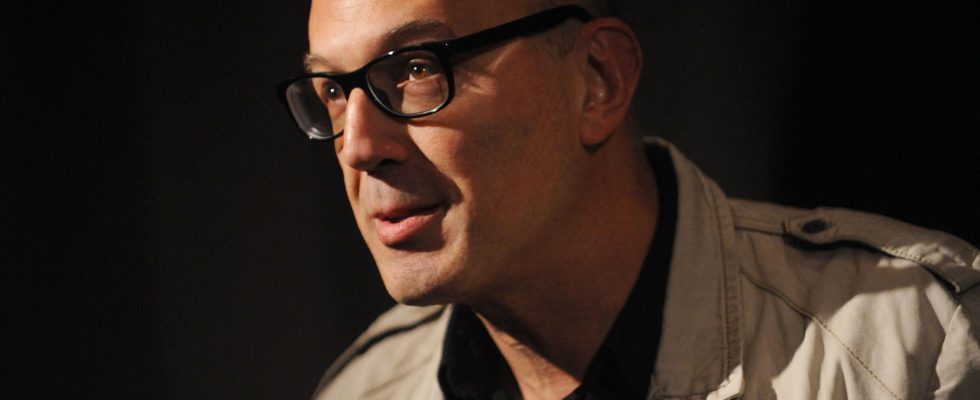I don’t know what I find in them so much this so much that, but when they get down to it in threes, beautiful like that, it’s impossible to know who’s the sweetest, the most tragic, who’s the eldest, the youngest, all three of them are 20 years old when they stand like this, huddled together, standing behind the piano, singing Almaran’s bolero, love storyin Francis Blanche’s version: “My story/It’s the story of a love/My lament/It’s the complaint of two hearts/A novel like so many others/Which could be yours/People from here or from elsewhere”, so there, in the softness of my armchair at Club 13, I sink further, and I crack.
It must be said that it’s been a while since watching Carlos Chahine’s film, The Night of the Glass of Water, I let myself be touched by the images, by the story, by this road that winds through the holy valley, by this cream-colored Mercedes-Benz Sedan model 1958 that goes up to Hadath El Jebbeh, the village where Christ had to stop, because everything there is miraculous, the air, the light, the Blessed Virgin who cries tears of blood, because of which, what have they done to her, it is to be struck forehead on the ground under the eyes of the child who is also the author of the film. Before his eyes, the dreaded visit of the caciques of the region who come to drink tea with Mr. Younès to buy his daughters from him. He has already sold one, it negotiates for the next, in hectares of vines, olive groves. But she, she doesn’t want this old frisky. She has a lover, young and handsome, who kisses her in the ruined chapel. The drama is coming. We really want things to work out, how can we imagine her in the arms of this guy, not that old, not even libidinous, but come to buy her?
Under the unfriendly gaze of the child, the appearance of the French visitor, colonialist version of the exterminating angel, courteous, reserved, a doctor who travels with his mother, can one imagine more harmless?
A reconstruction that takes three times nothing
There is sacrifice in the air. All the elegance of Chahine’s film is in the imperceptible rise of the tragic, in the clannish torpor of the secrecy of the kitchens. They are so fragile these three sisters, half Shakespeare half Chekhov, and totally submissive to their males, husbands, fathers, lovers. Submissive also to the child, spoiled, capricious, crown prince. For his 6th birthday, he asks his father for a tank, a real one, one of those the Americans landed on the port of Beirut to save Lebanon from who knows what war. All are fighting over the country. At the time, it was the Christians who reigned and the Muslims who obeyed.
As a tank, Dad brings a camera from town to project a newsreel showing the Yankee tanks. Cruel disappointment of the little warrior who will console himself in his mother’s bed. Freud didn’t go up to the village, he doesn’t have a Mercedes Benz. This is the story of a country dreamed up by a child. A country where patriarchy crumbles as girls get better. For the primitive love scene, between Mr. Younès’ daughter and the French visitor, Chahine dares to use a static shot. Fixed like the gaze of a child who would watch fifty years later, frozen in amazement, the choreography of reciprocal frustrations, the passage of obligatory coitus which leaves behind it the dread of the pleasure one took there, and in front of the years of a hopeless future.
The Night of the Glass of Water is not a period film, in costume and all. The reconstruction is its other success, it is next to nothing, out of politeness towards what remains of the past, it reconstructs a memory, without concession to folklore, to vintage. Chahine is not an antique dealer, he is a big guy, a Lebanese from the mountains who remembers the glass of water his mother brought him before fleeing. He put it on his bedside table waiting to drink it, or not.
* Christophe Donner is a writer
